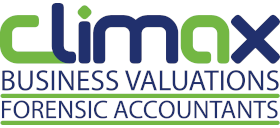What are Reportable Employer Superannuation Contributions for Payment Summaries?
Whether you’re an employer or an employee you need to read this. In 2010 the Australian Taxation Office added a new label to the annual payment summaries (group certificates) for Reportable Employer Superannuation Contributions. The ATO has since broadcast a number of warnings stating that many employers have made errors in reporting this label. The consequences for getting it wrong can be significant for both employers and employees so it’s important for everyone to understand how the reportable amount is calculated, otherwise you could end up paying too much tax.
Reportable Employer Superannuation Contributions are any super contributions made by an employer above and beyond what they are already required to contribute by the superannuation guarantee rules (9.5%) or by the employee’s award or industrial agreement if that states a rate higher than 9.5%. So reportable super contributions will usually equate to the salary sacrificed contributions made for an employee as well as any bonuses redirected to the employee’s superfund.
How to avoid a mistake?
1) Do not report the full amount of super contributions made for the employee; and
2) Do not ignore this label if additional super contributions have been made.
How do Reportable Employer Superannuation Contributions affect your tax return?
From the ATO:
“Although you must include all reportable employer superannuation contributions you make for an employee on their payment summary, you do not include these contributions in your employee’s gross income.
Reportable employer superannuation contributions are not included in your employee’s assessable income. However, these contributions are included in the income tests for the following benefits and obligations we administer:
- Medicare levy surcharge threshold calculation
- Medicare levy surcharge (lump sum payment in arrears) tax offset
- all dependant tax offsets
- senior Australians tax offset
- pensioner tax offset
- mature age worker tax offset
- spouse super contributions tax offset
- entrepreneurs’ tax offset
- super co-contributions
- deduction for personal super contributions
- Higher Education Loan Program (HELP) and Student Financial Supplement Scheme (SFSS) repayments
- tax concessions for certain employee share schemes
- deductions for non-commercial losses.
The new law also affects a range of Centrelink and Child Support benefits and obligations.”
What to do if you’re an employer
Do not necessarily trust your accounting software to calculate the correct reportable super amounts. Manually check each employee’s payroll records for additional super contributions.
What to do if you’re an employee
Check your payment summary for errors as soon as you get it. If you think there’s an error tell your employer immediately and ask for an amended payment summary.
For more information speak to your accountant or tax agent.
